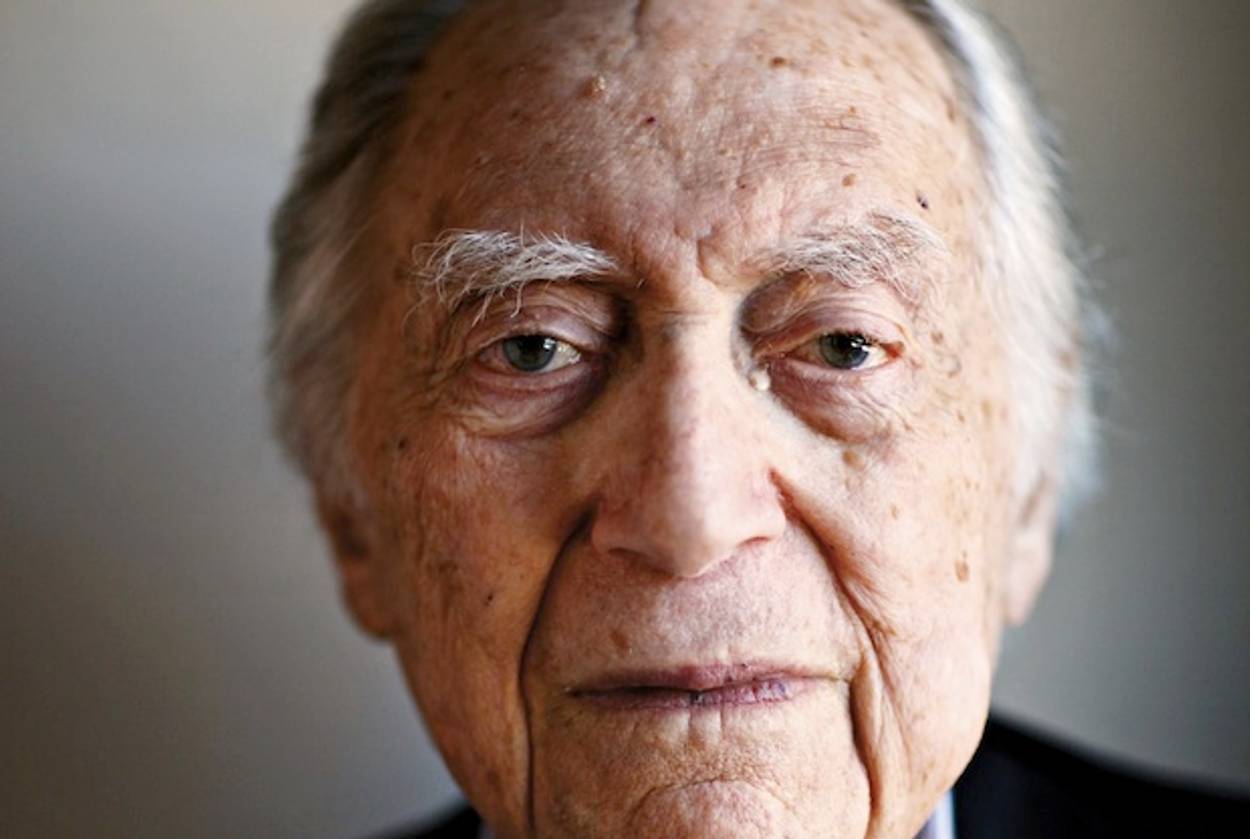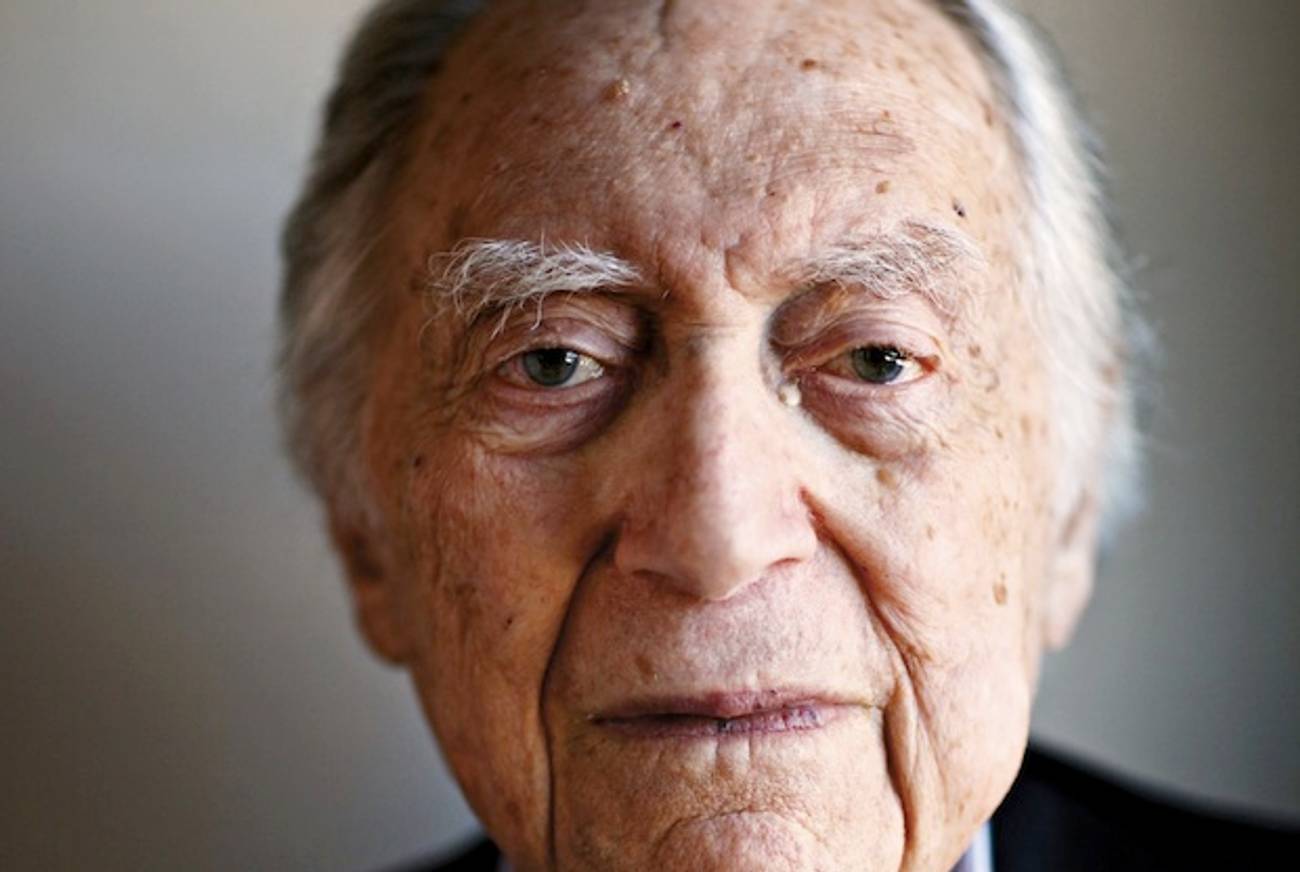Film Critic Stanley Kauffmann (1916-2013)
He elegantly wrote on films and plays for 55 years




Our friends at The New Republic have announced that their longtime film critic Stanley Kauffmann passed away this morning at age 97. If there’s one wish for a writer’s career, it’s that it be as long and as distinguished as Kauffmann’s, who continued writing into this year. TNR has a collection of tributes from his peers and colleagues as well as some of his reviews.
Kauffmann was one of my early introductions to The New Republic. I remember being assigned to read one of his reviews for a college class and being struck by how effortlessly he broke down the dimensions of an entirely different medium. Sure, he wouldn’t deign to review flicks like L.A. Confidential or Team America: World Police, but that may have represented a discernment he wished to instill in all moviegoers.
Consider these lines from his 1963 review of Federico Fellini’s classic 8 1/2:
The telling imaginative touches keep tumbling out one after another. In a dream his dead mother suddenly kisses him passionately on the mouth; when she pulls her head away, it is his wife. When his writer quotes one too many pearls of wisdom, the director wearily lifts a finger in command, two bravoes suddenly appear, slip a black hood over the writer’s head and hang him on the spot. When certain nonsense syllables remind him of his childhood, we go back to his family’s house–as spacious and safe as it seemed to him then–when he and his cousins were treading grapes in a tun, then were washed and carried off to bed in clean sheets in their nurses’ arms. There is no point in a catalogue; the effects are many and marvelous. The dreams do not fade out and in, they are part of the fabric. If it takes a moment to decide whether what is happening is dream or not, the confusion is probably part of the design.
But when we ask what the theme of the film really is, what the director learns from his crisis about his crisis, what the resolution really means, the answers are less satisfactory. He says at the end, as he watches the dramatis personae of his life dancing around a circus ring, that he has learned to live with his past. There is little indication up to now that he was not living with it; the resolution seems a somewhat hollow convenience to end the film pleasantly. (It could easily be argued that his fantasy suicide near the end ought to be the true end and is the logical conclusion: that the resolved, happy ending in reality is itself a fantasy.) The genuine raison d’etre of the picture is in the opportunities it provides for Fellini. The reason that certain operas exist is that certain singers existed who could sing them. The prime reason for this film is that Fellini is a prodigious film virtuoso.
The Times had a lengthy obituary for Kauffmann at the ready, which offered this.
He could, however, deliver a tart putdown. He called the director Robert Altman “a walking death sentence on the prospect of American film,” dismissed “Casablanca” as “a slushy romance” and called Luis Buñuel “a highly resourceful technician and a highly neurotic adolescent.”
1943, the same year he panned Casablanca, Kauffmann married his wife Laura Cohen, who passed away last year.
Adam Chandler was previously a staff writer at Tablet. His work has appeared in the New York Times, the Wall Street Journal, the Atlantic, Slate, Esquire, New York, and elsewhere. He tweets @allmychandler.